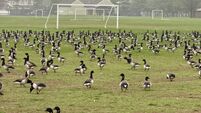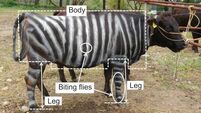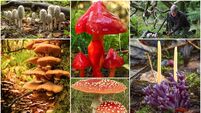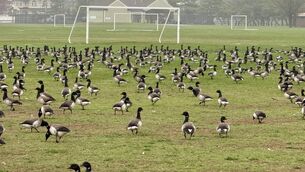Donal Hickey: Early (black)bird gets spring things going
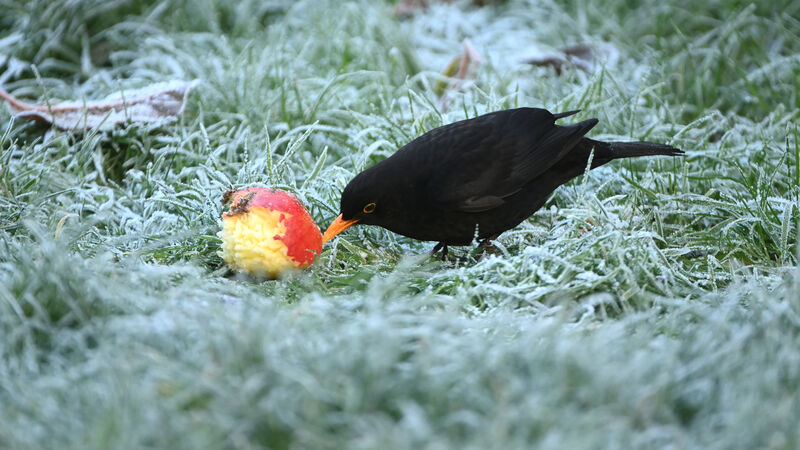
A blackbird feeds on a fallen apple as frost covers the grass during a cold spell. Picture: Larry Cummins
In the early days of 2025 came a reminder of what to expect in our changing climate — sudden changes in the weather and sub-zero temperatures.
Christmas Day was one of the mildest on record, touching 13°C at Shannon Airport. The average temperature for that time is nearer to 5°C.
On a December 25 walk, we heard a blackbird sing from a perch high on a tree — beautifully clear and echoing over a wide area on one of the quietest of days. Normally, we must wait until late February, or March, for this annual serenade.
So, you wonder, is the blackbird being fooled by unseasonably high temperatures into seeking a mate and proclaiming his territory prematurely? The story is similar with plant life: tulips and daffodils were peeping up at us in December after all.
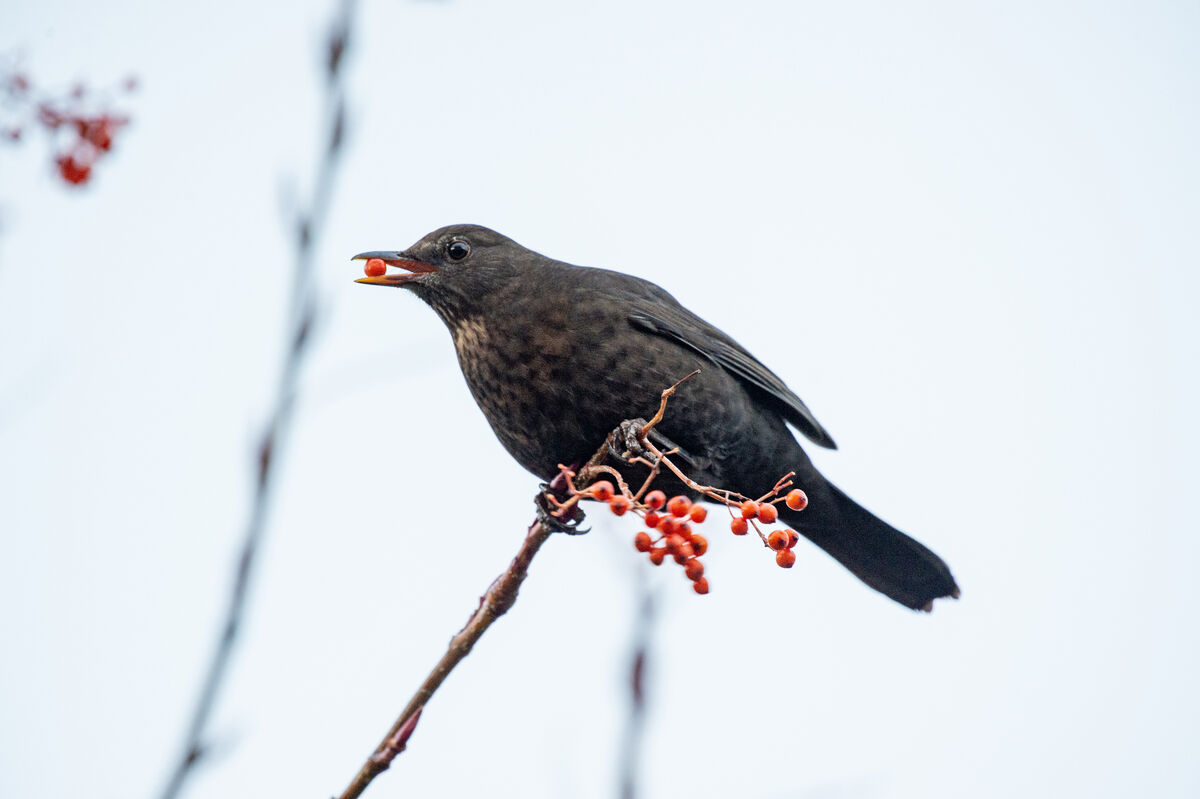
It was, however, heart-lifting to stop still for the blackbird on Christmas Day. The opening lines of Dora Sigerson Shorter’s eponymous poem came to mind:
/This is my brave singer/
With his beak of gold/
Now my heart’s a captive/
In his song’s sweet hold/
The Countryside Bird Survey puts our blackbird population at 4.6 million — almost one for every person and making it one of our more numerous birds. The population is largely resident year-round, according to the survey, with some migrants coming from Britain, Scandinavia and the Baltic states.
With spring on the way, you might be able to hear the blackbird break the morning silence, as you wake, along with, possibly the robin and thrush which are also very plentiful.
Their songs, of course, are different and varied in tone and rhythm, but you can learn them. It’s well worth googling Birdwatch and other nature websites on which you can listen to excellent recordings in your own time.
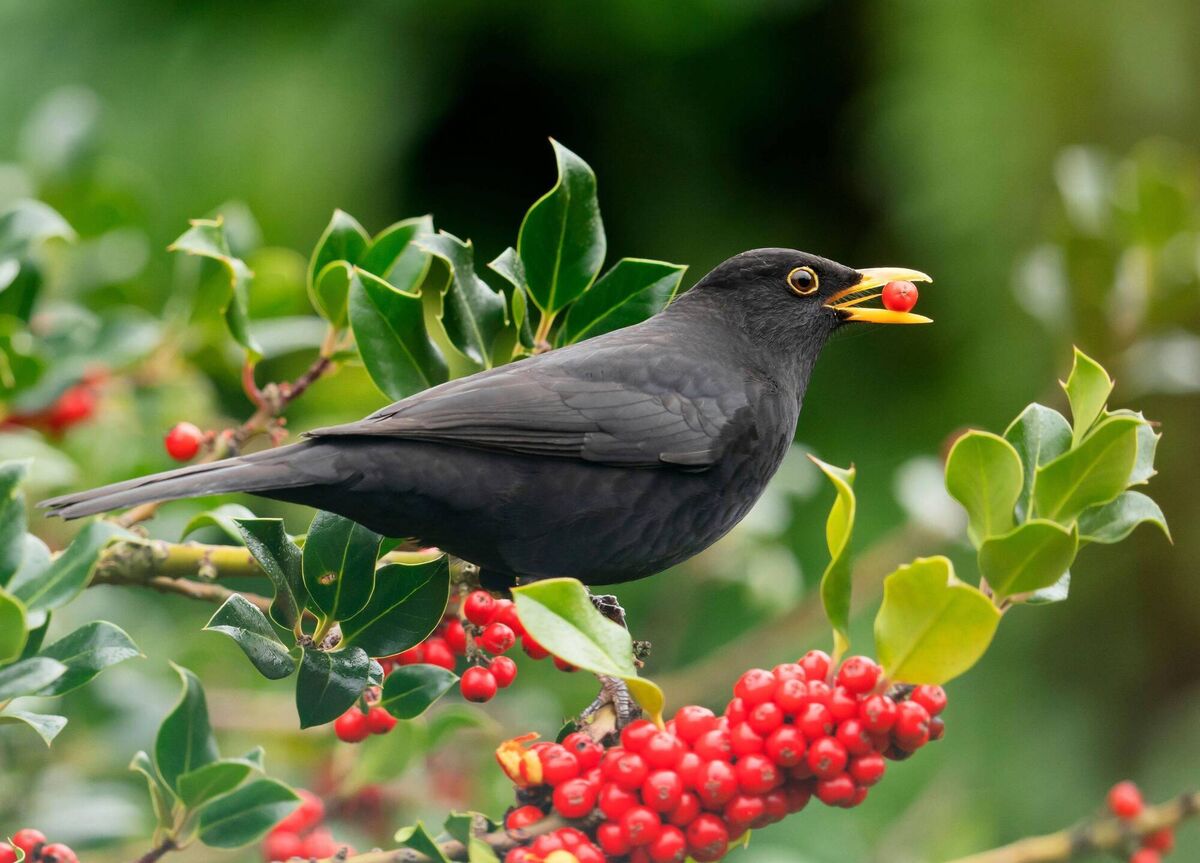
We’re probably more familiar with the blackbird’s song than any other, one of the most frequent avian visitors to our gardens along with the robin, thrush and wren. I saw blackbirds picking out worms from under the frost-covered grass the other morning and wondered if the fellow heard so clearly nearby on Christmas Day was among them!
The blackbird has taken well to urban life and is drawn to the gardens of suburban homes. Like many other wild creatures, it has suffered from a loss of rural habitat, but, similar to the fox and hedgehog to give just two examples, it has adapted well to living close to humans.
Indisputably one of our most prolific singers, it has also given its name to some superb tunes played by the likes of the renowned traditional fiddler, Denis Murphy, from Sliabh Luachra, along Cork/Kerry border.



